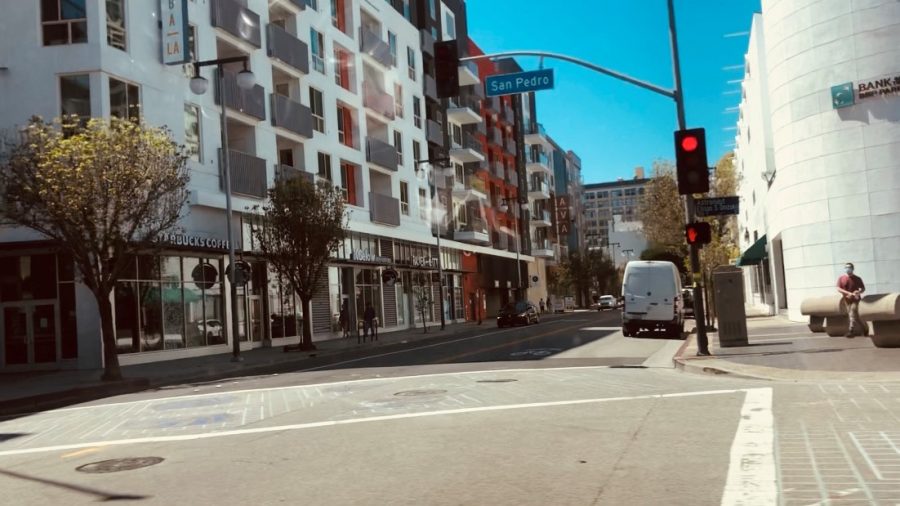Coronavirus Causes Businesses, Institutions to Adapt
Some assistance was made available, but it’s unclear if its enough
On March 15, Los Angeles Mayor Eric Garcetti announced temporary restrictions to stop big groups from gathering and staying in close proximity. The social distancing order had been said to be effective through March 31, but as more and more cases of COVID-19 appeared in the city, the restriction was extended until May 15. This temporary restriction was created to help flatten the curve and keep as many people healthy as possible, closing all places where there would be large gatherings such as the GCC campus and only keeping “essential businesses” open. Essential businesses have been forced to adapt their practices to stay open. Many others do not fall under the “essential businesses” category, meaning lots of families are now without an income.
More than six weeks have passed since the temporary restrictions were put in place and many small businesses and self-employed people in Los Angeles are struggling to make ends meet. Despite the largest stimulus bill in history, COVID-19 had financially impacted the whole economy leaving small business owners with decisions to make.
On March 30, the Treasury Department and the Internal Revenue Service (IRS) announced the distribution of economic impact payments would begin with the only requirement to receive the check is to have filed tax for 2019 or 2018. However, the individual must have a social security number to be able to receive the stimulus check, and if you only have a Tax Pin (ITIN), you will not be eligible, shutting out aid for families, even if their children are first-generation citizens, according to the IRS. If two spouses were to file their taxes together but only one person has a social security number and the other spouse only has an ITIN, that family is no longer eligible to receive the stimulus check, also closing the door to receive funding for the aid for their children, according to the IRS.
Many small businesses in Los Angeles are mom and pop owned, which heavily rely on the income from their revenue. As the doors stay closed, people are left with bills to pay and questions on how they will be able to pay them. Some businesses were unable to find the answer and were already forced to shut down. The U.S. Small Business Administration announced that they will be giving small interest loans for businesses that apply for them and that the loans may be forgivable if 75% of the amount received is spent on payroll, with the other 25% being spent on utilities, rent or mortgage interest. These loans are helping the economy and families as establishments that have received the loans are able to keep their employees, but since COVID-19 is not like anything we have experienced before, it is unknown when the temporary restrictions will be lifted.
COVID-19 had caused the closure of many small businesses across the country, but as the reason for the closures is to keep as many people healthy and help flatten the curve, many citizens are no longer abiding the stay at home order. California Gov. Gavin Newsom vowed that he will increase the length of the statewide enforcement for everyone to stay home, saying, “The only thing that will set us back is people stopping to practice physical distancing and appropriate social distancing. That’s the only thing that’s going to slow down our ability to reopen this economy.” These protests might just be adding to the pot of problems that COVID-19 has brought.
GCC will continue to host the upcoming summer session classes online. At the moment, El Vaquero is unable to confirm if classes in the upcoming Fall 2020 session will be held on campus or to stay on the online platform, but we were advised to watch our email. Nevertheless, GCC’s staff is continuing to provide students with assistance on their college pathway.
Eric Manon can be found at [email protected]

